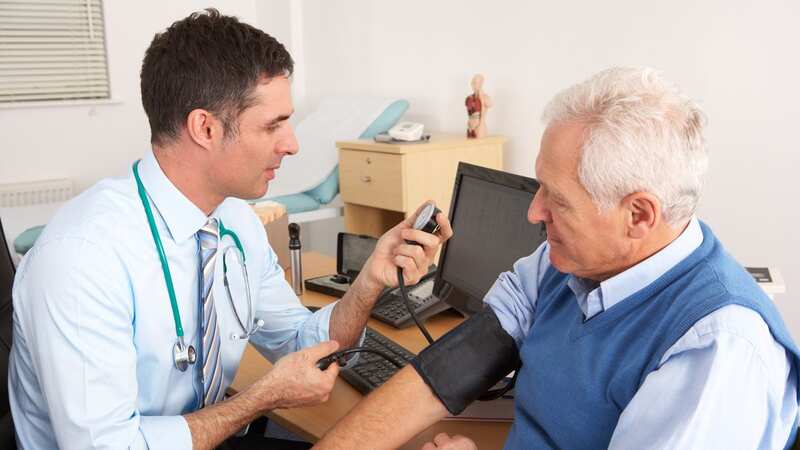Silent killer condition with no obvious symptoms affecting millions of Brits

Over one billion people around the world have a killer condition - but almost half of them are unaware of it.
High blood pressure, also known as hypertension, is when the pressure in your blood vessels is higher than normal. To measure blood pressure, two numbers are taken into account. The first, called the systolic pressure, is the pressure in your blood vessels when your heart beats and is the higher number. The second, known as diastolic pressure, measures the force of blood in your arteries while your heart is relaxed between beats.
Hypertension is known as a silent killer as there are no obvious symptoms to indicate that something is wrong. The condition usually develops slowly over time and while it cannot be cured, there are ways to manage it, including lifestyle changes and medication, if needed.
 The condition is known as a silent killer (Stock photo) (Getty Images/iStockphoto)
The condition is known as a silent killer (Stock photo) (Getty Images/iStockphoto)Risk factors include a family history of the condition, as you might be at increased risk if your parents or other close blood relatives have high blood pressure. Age is also a risk factor as the older you are, the more likely you are to have hypertension. Drinking too much alcohol or coffee and a high level of stress can also increase your risk of hypertension.
Until the age of 64, men are more likely to get high blood pressure than women. At 65 and older, women are more likely to get high blood pressure. Black people also tend to develop high blood pressure more often than people from other racial backgrounds, according to Heart. Patients with chronic kidney disease are also considered to be more at risk.
 Teachers, civil servants and train drivers walk out in biggest strike in decade
Teachers, civil servants and train drivers walk out in biggest strike in decade
The ideal blood pressure is 90/60mmHg and 120/80mmHg, while the target for people over the age of 80 years old is below 150/90mmHg, the NHS explains. Blood pressure readings from 121/81mmHg to 139/89mmHg could mean you are at risk of developing high blood pressure if you do not take steps to keep your blood pressure under control.
In the UK alone, more than 14 million adults have high blood pressure - and as many as five million people are thought to be undiagnosed, says the British Heart Foundation. Unfortunately, patients often find out they have hypertension when they have a stroke or heart attack.
Lifestyle changes such as eating a healthier diet with a lower salt intake and having more vegetables and fruits, quitting smoking and exercising more can help lower blood pressure. Depending on the patient and whether they have any other conditions, the doctor may also prescribe a medicine such as calcium channel blockers or diuretics.
The World Health Organisation explains that people with high blood pressure may experience nausea, vomiting, anxiety, anfusion and difficulty breathing. Complications of uncontrolled hypertension include chest pain, heart attack, heart failure and irregular heart beat which can lead to sudden death.
The prevalence of hypertension varies across regions and country income groups. The WHO African Region has the highest prevalence of hypertension (27 per cent) while the WHO Region of the Americas has the lowest prevalence of hypertension (18 per cent).
The number of adults with hypertension increased from 594 million in 1975 to 1.13 billion in 2015, with the increase seen largely in low and middle-income countries. This increase is due mainly to a rise in hypertension risk factors in those populations.
Read more similar news:
Comments:
comments powered by Disqus

































